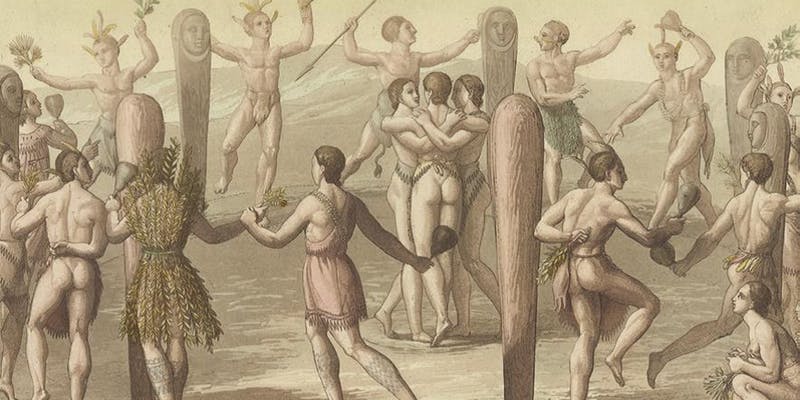A reminder the launch event for Choreomania: Dance and Disorder (OUP, 2018) will be taking place at the Horse Hospital, Bloomsbury, next Wednesday 20th June 6.30-8.30pm. Featuring film screenings, theory bursts, and good cheer.
On the book:
Choreomania: Dance and Disorder
Kélina Gotman
Oxford Studies in Dance Theory, Oxford University Press, 2018, 384pp.
Description
When political protest is read as epidemic madness, religious ecstasy as nervous disease, and angular dance moves as dark and uncouth, the disorder being described is choreomania. At once a catchall term to denote spontaneous gestures and the unruly movements of crowds, choreomania emerged in the nineteenth century at a time of heightened class conflict, nationalist policy, and colonial rule. In this book, author Kélina Gotman examines these choreographies of unrest, rethinking the modern formation of the choreomania concept as it moved across scientific and social scientific disciplines. Reading archives describing dramatic misformations of bodies and body politics, she shows how prejudices against expressivity unravel, in turn revealing widespread anxieties about demonstrative agitation. This history of the fitful body complements stories of nineteenth-century discipline and regimentation. As she notes, constraints on movement imply constraints on political power and agency. In each chapter, Gotman confronts the many ways choreomania works as an extension of discourses shaping colonialist orientalism, which alternately depict riotous bodies as dangerously infected others, and as curious bacchanalian remains. Through her research, Gotman also shows how beneath the radar of this colonial discourse, men and women gathered together to repossess on their terms the gestures of social revolt.
CONTENTS
Introduction: Choreomania, Another Orientalism
Part I: Excavating Dance in the Archives
1. Obscuritas Antiquitatis: Institutions, Affiliations, Marginalia
2. Madness after Foucault: Medieval Bacchanals
3. Translatio: St. Vitus's Dance, Demonism and the Early Modern
4. The Convulsionaries: Antics on the French Revolutionary Stage
5. Mobiles, Mobs and Monads: Nineteenth-Century Crowd Forms
6. Médecine Rétrospective: Hysteria's Archival Drag
Part II: Colonial and Postcolonial Stages: Scenes of Ferment in the Field
7. "Sicily Implies Asia and Africa": Tarantellas and Comparative Method
8. Ecstasy-belonging in Madagascar and Brazil
9. Ghost Dancing: Excess, Waste and the American West
10. "The Gift of Seeing Resemblances": Cargo Cults in the Antipodes
11. Monstrous Grace: Blackness and the New Dance "Crazes"
12. Coda: Moving Fields, Modernity and the Bacchic Chorus
https://www.eventbrite.co.uk/e/choreomania-dance-and-disorder-book-launch-tickets-45482871493
“A conceptual tour-de-force! Gotman effectively mobilizes Foucault, Said, Foster, Agamben, and Gilroy to assemble a discursive history of choreomania. Progressive, 21st-century thinking that incorporates critical race theory, feminist theory, and the crucial critique of modern scientific approaches to movement. A triumph for dance studies that reflects an always-changing world-in-motion, ever-activated by shifting political circumstances.”—Thomas F. DeFrantz, Professor of Dance, African and African American Studies, and Theatre Studies, Duke University
“Offering an astute history of ideas about dance that charts both fears and desires about bodies in movement, Gotman crafts a truly insightful way of thinking, which is to say moving, across and among the archives and the fields in which ‘dance’ is practiced and given to remain, deployed and never quite contained. Throughout Gotman’s keen analyses, 19th-century choreomania is read not only in relationship to but also as the best and the worst of modern biopolitics.”—Rebecca Schneider, Professor of Theatre Arts and Performance Studies, Brown University
